 Route To Politics Via New Zealand For Cambodian
Route To Politics Via New Zealand For Cambodian Wednesday, 22 April 2009
NZPA (New Zealand)
From Wellington taxi driver to government minister in Cambodia, Veng Sereyvuth tells MAGGIE TAIT of NZPA about life under and after the Pol Pot regime.
Wellington, April 22 NZPA - Veng Sereyvuth once drove the streets of Wellington in his cab, now when he visits the city the Cambodian government minister can relax in the backseat.
Mr Veng and his family started a new life in Wellington after surviving the Pol Pot regime -- unlike 1.7 million others who died of disease, overwork and starvation.
The family were among the 4661 Cambodian refugees whom New Zealand accepted between the end of the Pol Pot regime in 1979 and 1992.
Aged 50, Mr Veng is now divorced with a 12-year-old son. He lives a good life, is quick to laugh and is proud of his ministerial roles -- a Senior Minister of the Prime Minister's Office, he had previously served as tourism and culture minister.
Sitting in the comfort of a five-star hotel in Phnom Penh, Mr Veng recalls flying into New Zealand in 1980.
It was paradise after the hell of the Khmer Rouge.
"I will remember for the rest of my life when I got out of the plane I saw the green, the hills. Whoa. The word that came to mind was heaven.
"We survived, we reached the western world, a civilised country ... (we felt) so much hope."
The family had fled before. Mr Veng's parents and their eight children left Khmer Rouge ruled countryside in 1971 when he was aged 12 to move to the capital where it was still possible to get an education.
But the reprieve was short lived and in 1975 the regime took over the Phnom Penh and forced its evacuation. The city or "new people" were sent to the provinces to work the fields with other peasants in the ultra-communist country.
"It was primitive, you committed your whole life, your whole soul for Angkar (the organisation). There's no faith, there's nothing there."
Individuals could not have belongings or money, they were limited in what they could say and had little or no freedom. Family members were separated.
New people were moved to wherever workers were needed, and the work was gruelling and hours absurdly long.
"We were not thin we were, how do I say it? I have seen documentary (footage) of the Jewish people in concentration camps, that is what we all were. Bones, thin is not good enough."
Every day there were two or three re-education meetings.
"In the morning before you go to work Angkar would educate you, before you eat Angkar would educate you. You were so tired your mind was shut already."
Starvation turned humans into food hunting machines -- a tactic Mr Veng said killed thoughts of rebellion.
He ate raw rice and swallowed any small creature that crossed his path.
Disease and sickness were rampant, Mr Veng was only cured of malaria while living in New Zealand.
Sometime he did not think he would survive.
"Hope is there somewhere, blurry sometimes, sometimes clear. But it was at the back of my mind."
That hope came from his Buddhist faith but also from disbelief such a cruel regime could be sustainable.
"It enslaved its own people ... We knew they would not be strong forever."
Mr Veng says throughout all his family kept their humour -- a brother one night snuck over to near where he was sleeping and pretended to be a Khmer Rouge planning to disappear him overnight.
"Under Khmer Rouge they did that, they killed people at night ... I almost died (of shock)."
Coming to Wellington in 1980, following about a year in a refugee camp, Mr Veng suffered nightmares but otherwise put those troubled times out of his mind.
He studied to achieve school qualifications before obtaining a bachelor of arts majoring in politics from Victoria University.
Driving his cab, number 123, Mr Veng worked long hours.
He laughingly recalls dropping one passenger off at night and picking the same man up the next morning to his amazement.
Other jobs included orderly work at Wellington Hospital and a role in a printing shop.
One sister, Visoth, married and still lives in Wellington, another sister lives in Australia but other members returned to Cambodia.
Mr Veng was the first to head back. "In my mind at the time .... (I thought) New Zealand may not need me but I may be able to contribute to those in need at the border or in Cambodia."
He returned in 1988 and worked as a translator at the same refugee camp he lived in before coming to New Zealand. At the camp he was approached by a political party and never looked back.
* Maggie Tait travelled to Cambodia with the assistance of the Asia New Zealand Foundation.
Wellington, April 22 NZPA - Veng Sereyvuth once drove the streets of Wellington in his cab, now when he visits the city the Cambodian government minister can relax in the backseat.
Mr Veng and his family started a new life in Wellington after surviving the Pol Pot regime -- unlike 1.7 million others who died of disease, overwork and starvation.
The family were among the 4661 Cambodian refugees whom New Zealand accepted between the end of the Pol Pot regime in 1979 and 1992.
Aged 50, Mr Veng is now divorced with a 12-year-old son. He lives a good life, is quick to laugh and is proud of his ministerial roles -- a Senior Minister of the Prime Minister's Office, he had previously served as tourism and culture minister.
Sitting in the comfort of a five-star hotel in Phnom Penh, Mr Veng recalls flying into New Zealand in 1980.
It was paradise after the hell of the Khmer Rouge.
"I will remember for the rest of my life when I got out of the plane I saw the green, the hills. Whoa. The word that came to mind was heaven.
"We survived, we reached the western world, a civilised country ... (we felt) so much hope."
The family had fled before. Mr Veng's parents and their eight children left Khmer Rouge ruled countryside in 1971 when he was aged 12 to move to the capital where it was still possible to get an education.
But the reprieve was short lived and in 1975 the regime took over the Phnom Penh and forced its evacuation. The city or "new people" were sent to the provinces to work the fields with other peasants in the ultra-communist country.
"It was primitive, you committed your whole life, your whole soul for Angkar (the organisation). There's no faith, there's nothing there."
Individuals could not have belongings or money, they were limited in what they could say and had little or no freedom. Family members were separated.
New people were moved to wherever workers were needed, and the work was gruelling and hours absurdly long.
"We were not thin we were, how do I say it? I have seen documentary (footage) of the Jewish people in concentration camps, that is what we all were. Bones, thin is not good enough."
Every day there were two or three re-education meetings.
"In the morning before you go to work Angkar would educate you, before you eat Angkar would educate you. You were so tired your mind was shut already."
Starvation turned humans into food hunting machines -- a tactic Mr Veng said killed thoughts of rebellion.
He ate raw rice and swallowed any small creature that crossed his path.
Disease and sickness were rampant, Mr Veng was only cured of malaria while living in New Zealand.
Sometime he did not think he would survive.
"Hope is there somewhere, blurry sometimes, sometimes clear. But it was at the back of my mind."
That hope came from his Buddhist faith but also from disbelief such a cruel regime could be sustainable.
"It enslaved its own people ... We knew they would not be strong forever."
Mr Veng says throughout all his family kept their humour -- a brother one night snuck over to near where he was sleeping and pretended to be a Khmer Rouge planning to disappear him overnight.
"Under Khmer Rouge they did that, they killed people at night ... I almost died (of shock)."
Coming to Wellington in 1980, following about a year in a refugee camp, Mr Veng suffered nightmares but otherwise put those troubled times out of his mind.
He studied to achieve school qualifications before obtaining a bachelor of arts majoring in politics from Victoria University.
Driving his cab, number 123, Mr Veng worked long hours.
He laughingly recalls dropping one passenger off at night and picking the same man up the next morning to his amazement.
Other jobs included orderly work at Wellington Hospital and a role in a printing shop.
One sister, Visoth, married and still lives in Wellington, another sister lives in Australia but other members returned to Cambodia.
Mr Veng was the first to head back. "In my mind at the time .... (I thought) New Zealand may not need me but I may be able to contribute to those in need at the border or in Cambodia."
He returned in 1988 and worked as a translator at the same refugee camp he lived in before coming to New Zealand. At the camp he was approached by a political party and never looked back.
* Maggie Tait travelled to Cambodia with the assistance of the Asia New Zealand Foundation.
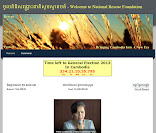
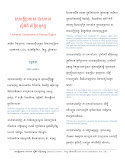











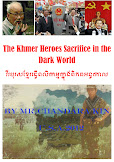


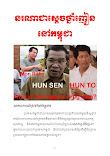


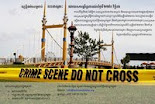



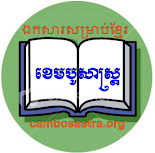

11 comments:
He is really a very very bad guy.
Making a career out of the expense of his wife. This kind of individual were not respected by society. Coward !
baises toi à 3 avec my phalla et enculer comme il faut SIHAMONI ET
RANNARIDH 2 BATARDS PD créait par a CHKè SIHANOUK ...
You are sound like pol pot!
ពួកអ្នកឯងប៉ុន្មាននាក់ហ្នឹងដួចពលពតអិញ្ចឹង។
ពុំដែលចង់មានស្តេចនៅក្នុងប្រទេសទេ។នេះហើយ
ដែលគេហៅថាជនអគតិ។ហើយចូលចិត្តតែច្រ
ណែននិន្ទាគ្នាមិនចេះចប់ទេ។បើខ្នួនឯងរកពុំបាន
រួចទៅច្រណែននឹងអ្នកគេរកបាន។ខ្មែរភាគច្រើន
ណាស់ដែលរស់នៅបរទេសហើយច្រណែនខ្មែរនឹង
ខ្មែរគ្នាឯង។ដួចជាសាពត៍មាន,វិទ្យុ,ខ្មែរមិន
សង្ឃឹមថាខ្មែរនៅបរទេសកសាងប្រទេសទេ។
ចេះតែច្រណែននឹងខ្មែរនៅក្នុងស្រុកប៉ុណ្ណឹងឯង។
មិនដែលបាននិយាយប្រាប់បរទេសអំពីរឿង
ខ្មែរសាសខ្លួនឯងនៅក្នុងស្រុកឲ្យគេបានដឹងទេ។
ពុំដែលប្រាប់បរទេសថាបងប្អូនខ្មែររបស់ខ្ញុំនៅឯ
ក្នុងស្រុកគឺជួបការលំបាកណាស់។គឺមានតែធ្វើការ
វាយប្រហារទៅលើរាជរដ្ធាភិបាលថែមទៀត។
នេះហើយខ្មែរនៅក្រៅស្រុកហើយម្នាក់ៗអួតឲ្យ
ក្តែងៗថាខ្លួនជាខ្មែរចង់កសាងប្រទេសឲ្យបានរុង
រឿងប៉ុន្តែម្នាក់ៗរកតែពេលសម្រាកពីការអារពុំបាន
ផងបើដួច្នេះទុកឲ្យរាជរដ្ធាភិបាលលោកគាត់ធ្វើទៅ
ហើយចាំតែជួយគាំទ្រទៅវាស្រេចទៅហើយ។
Ms. Phalla is a ballet dancer and a star of Prince Ranarith's film, but does anyone know when did he actually marry her?
To give up a loving wife in exchange for a big job is a personal sacrifice and some people do. Hope, Mr. Seryvuth did it out annoying .
Want more story ex-khmer refugee serve our country.
But to success in politic of current government these man must paid heavy sum($) to be seat at current position.
Money talk is our business in cambodia politic on every level.
IT IS REAL !!!
Ah LAMUP OM NARCH!
Veng Sereyvuth, you'll be burnt in hell with your boss Ak Kwack Hun Sen.
Fucken guy giving away pussy? damn!
He's GAY! that's why he don't like pussy...
Post a Comment